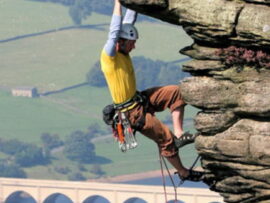In this week's Torah portion, Shoftim, Moshe commands the Jewish people: "You shall not erect for yourselves a monument (matzeivah) which Hashem, your G-d , hates." In the biblical lexicon, a monument is defined as an altar made of a single stone. In his classic commentary, Rashi contrasts this verse with another elsewhere in the Torah where Hashem expresses His preference that the Jewish people build an altar made of numerous stones (mizbeiach), as the verse states ( Deuteronomy 27:6) "Of whole stones shall you build the altar of Hashem."
An obvious question is why Hashem cares if we serve Him using a monument made up of a single large stone or an altar comprised of numerous stones.
Rabbi Moshe Feinstein zt"l suggests that a single-stone altar symbolizes something that is a finished product, whereas a multi-stone altar represents something that is steadily growing and being added to.
The Torah is teaching us that in terms of our personal growth and spiritual development, Hashem despises when we declare "I'm finished! I'm as good as I'm ever going to be!" That type of mindset causes people to become complacent and stagnate. An altar, which represents one's Divine service and spirituality, should be comprised of layers and layers of stone built upon one another, symbolizing a desire to strive for ever-higher levels of spirituality.
The process of personal development and improvement can be compared to mountain climbing, as the verse states (Psalms 24:3) "Who may ascend the mountain of Hashem, and who may stand in His place of sanctity?"
The key to successfully scaling a mountain, whether of the physical or spiritual variety, can best be summed up by a slogan I once saw emblazoned on a t-shirt depicting the image of a mountain climber: "To avoid danger of falling, keep on climbing!"
The process of reaching the summit may seem painstakingly slow, but the main thing is to keep putting one foot in front of the other and to keep moving forward. Also, one of the greatest dangers that mountain climbers face is moving forward too quickly, without seeing to it that they have sure footing, putting them at major risk of slipping and falling. In such a case, any seemingly quick progress they may have made will ultimately be compromised by slipping backward. Likewise, "ascending the mountain of Hashem" is a lifetime task, and while we must see to it that we keep moving forward, it's equally important to proceed gradually so that our personal accomplishments will be lasting ones. ffffffffffff

